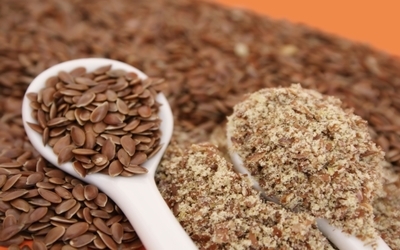Botany has played a great role in medical purposes. Botanicals, also known as herbal supplements are available easily today. Ginkgo will improve your memory. Flaxseed can help lower your cholesterol and Echinacea can prevent cold. But are these supplements really good for your health?
Firstly, herbal supplements aren’t subjected to the scientific scrutiny or strictly regulated like the other medications. There is no approval required from Food and Drug Administration (FDA) for producing and supplying botanicals in the market. Secondly, many herbal supplements that are termed natural may have drug-like side effects that can harm your body system. Hence it is advisable that do a thorough check before consuming any supplements. Have a word with your doctor before you buy botanicals. Be extra careful if you are a heart patient, pregnant or breast-feeding.
Is it safe?
Herbal supplements are regulated by FDA. However, as mentioned above, the rules and regulations are not as same as for foods and drugs. It falls under dietary supplements category. Here are the rules for dietary supplements.
The manufacturer of herbal supplements doesn’t need an approval from FDA before putting the products in the market. Besides, companies can claim that their products support health, address nutrient deficiency, linked to body functions – only if they include a disclaimer that the FDA hasn’t evaluated the claim.
It is the manufacturer’s responsibility to practice a quality oriented production and that the supplements should be processed timely. In order to maintain the quality of the supplements, the regulations are intended to keep the unwanted ingredients away, avoid contamination such as lead and pesticides out of them. This also makes sure that the right ingredients are used in proper required amounts.
It is the FDA’s responsibility to monitor the safety of dietary supplements, once they enter the market. If the FDA finds a particular product to be unsafe, it can take action against the manufacturer and the distributor. FDA will issue a warning and can also take the product off the market.
Such regulations ensure the good quality of herbal supplements and give you the assurance of picking up a product from the market without any worry. However, these rules don’t guarantee that the herbal supplements available in the market are beneficial or safe for everyone. Various ingredients are used while composing these products. These active ingredients can have a strong impact on your body and can be a threat to life. For instance, if you are on medication and you start consuming herbal supplements, the reaction can even be fatal. Hence, it is advisable that you consult your doctor before you start taking any herbal supplements.
What are the ingredients?
For this, the FDA demands that the manufacturer should include the following information on the label of the products:
Name of the herbal supplement
Name and address of the manufacturer or distributor
Full list of ingredients – either listed beneath or in the Supplement Facts Panel
Active ingredients, serving size and the amount
In case you are unable to understand the ingredients or anything else on the package of the herbal supplement, speak to your doctor or a pharmacist.
The simplest way to understand such things is to compare the ingredients listed on the product package by using the Dietary Supplements Labels Database, available on the National Library of Medicine’s website. You can check the products name, uses, active ingredients and the manufacturer’s name. However, it is important that you understand your body and its functioning before you in take any herbal supplements available in the market today.
